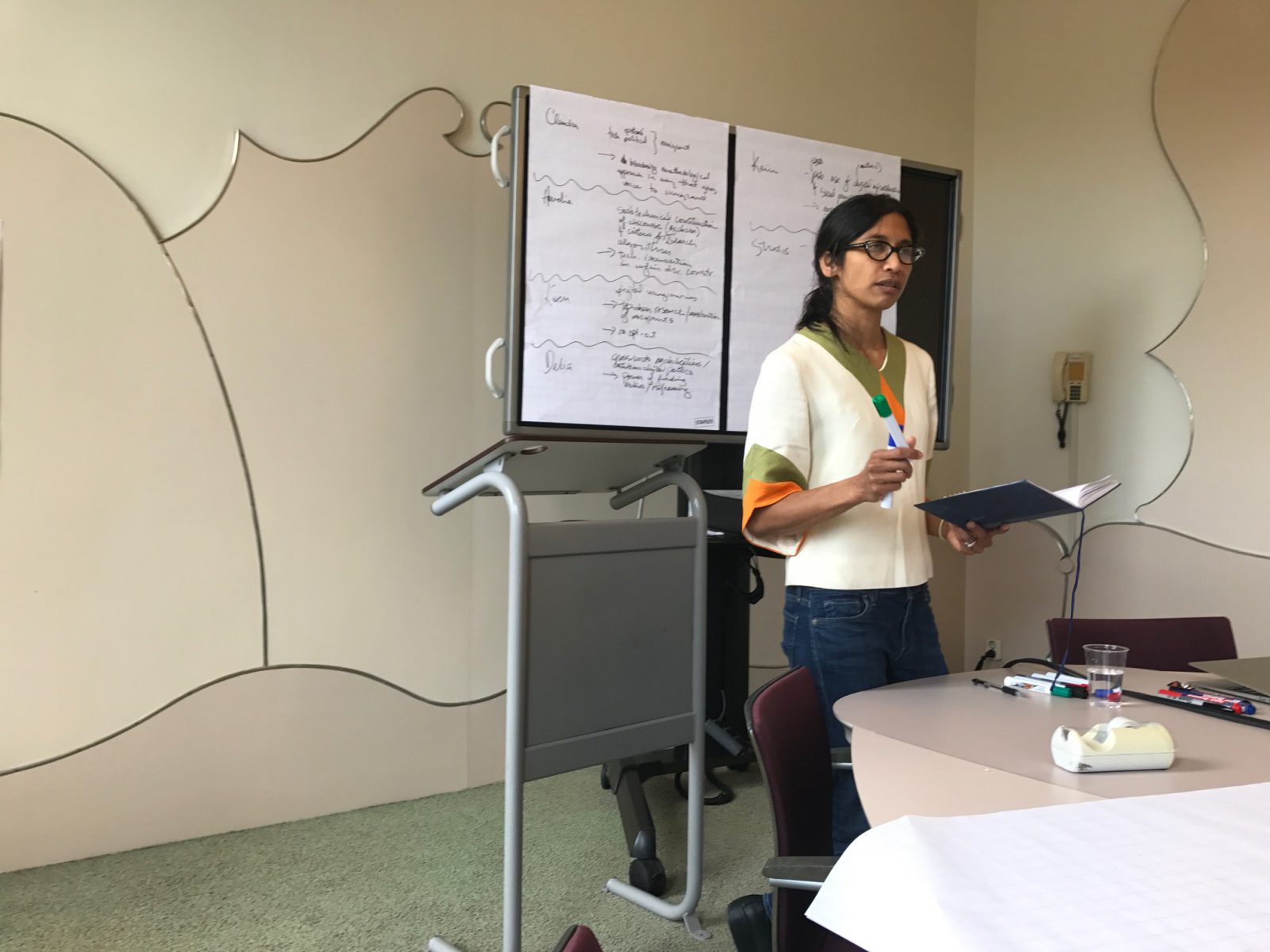News
Report event “Our Data, Our Bodies”, 9 June 2017
On 9 June 2017 Co.Laborations supported a public lecture organized by Karin van Es & Koen Leurs, about data and discrimination with Seeta Peña Gangadharan and Rathenau Institute. Below the report by Gerwin van Schie.

On June 9, 2017, Dr. Karin van Es (Datafied Society Research Hub) and Dr. Koen Leurs (Doing Gender lecture series, Netherlands Research School of Gender Studies) organized a RMeS masterclass and public lecture with support from Co.Laborations by Dr. Seeta Peña Gangadharan on the topic of data and discrimination. The event featured a collaboration with Rathenau Institute, a public institute fostering public and political opinion forming on social aspects of science and technology.
Gangadharan is an Assistant Professor at the London School of Economics and Political Science and a Program Fellow at New America’s Open Technology Institute. Her work focuses on social justice and data-driven policy, and on the nature of digital inequalities.

Masterclass
The morning masterclass started with a short introduction by Gangadharan on data and discrimination. She identified four ‘pockets’ of study shaping the world of scholarship:
- Impacts and effects: studies that look on the harms of automated computer technologies and the benefits (e.g., impact of Cambridge Analytica on election results).
- How discrimination happens: understanding/deconstructing technology (e.g., Princeton Center of Information and Technology Policy where they simulate the process whereby certain kinds of targeting happens).
- Inevitability of data-driven systems: studies about the political economy of typically corporate actor (e.g., studies from Christian Fuchs)
- History of discrimination: studies the systemic forces that contribute to institutionalized forms of racism, oppression, exclusion, and exploitation (e.g., postcolonial studies and feminist studies)


Gangadharan argued that this fourth pocket is not studied enough, and asked the class to brainstorm about others. Subsequently, she raised a series of questions about these approaches: Who is actually gaining from this particular focus and expertise that is privileged when you approach these problems in a particular way? Do the most affected groups benefit from these different approaches and how? We, the masterclass participants, then engaged in a so-called power analysis of the research of the participants as a way to built reflexivity. The questions driving this analysis were: Who gains from your research? Who looses or suffers? And what can you do about it? This helped reveal our situatedness and the fact that we operate in a larger infrastructure.

Public Lecture
Later that afternoon, in her public lecture at medialab SETUP in the Utrecht Public Library, Gangadharan discussed her current research project with the title Our Data Bodies in which she investigates the effect of institutional data gathering and profiling on historically marginalized communities in the US cities of Charlotte, Detroit, and Los Angeles. In recent years discussions around big data concerning privacy have slowly shifted in the direction of digital inequality. Where privacy was first mainly discussed as an individual right it is now increasingly seen as a collective issue, for people are being assessed on the basis of the features of the groups they are part of. Not only are people from marginalized communities often required to share more information nowadays, where data has come to serve as currency for many digital services, practices of data categorization and profiling also cause minorities to be offered different and less opportunities. As a consequence, the possible benefits of data-driven systems are not equally shared, causing what Oscar H. Gandy calls ‘cumulative disadvantage.’ Unfortunately, this process is not always visible, but often remains hidden in an algorithmic black box. This form of implicit discrimination is therefore difficult to detect and even more difficult to challenge by the people affected. Gangadharan championed the concept of data justice to function as a scaffolding to map justice deficits constructed and perpetuated through algorithmic social sorting and data-driven decision making.


In her reaction Dr. Melanie Peters from the Rathenau Institute explains how in her recent work the framing of issues concerning data collection has also shifted from privacy to digital inequality. As a result, Rathenau is actively advocating for two additional human rights: “the right not to be measured” and “the right to be cared for by a person”. Where the first additional human right protects people from becoming merely data points, the second human right makes sure that accountability stays with civil servants rather than an algorithmic information system. Some critical questions from the audience touched upon the historical context of governmental data gathering: in order for a government to function accurate gathering data is vital. In reply Gangadharan stressed how, through her empirical investigations, she has found that people from historically marginalized communities often lack the (data) literacy to be able to fully understand the systems in place to help them, such as health insurance and welfare. This causes people with severe challenges to overcome to have even more trouble to have their basic needs met. Apart from an evaluative framework for determining which data might be (un)necessary for an institution to have, better communication about the reasons and functions of information might increase trust and understanding within marginalized communities.
Gangadharans work resonates closely with writers like Oscar H. Gandy, Geoffrey Bowker, Susan Starr and John Cheney-Lippold. We will continue to follow the development of the Our Data Bodies project and will be very interested in the results, as similar developments will very soon, if not already, be present in the Dutch context.

